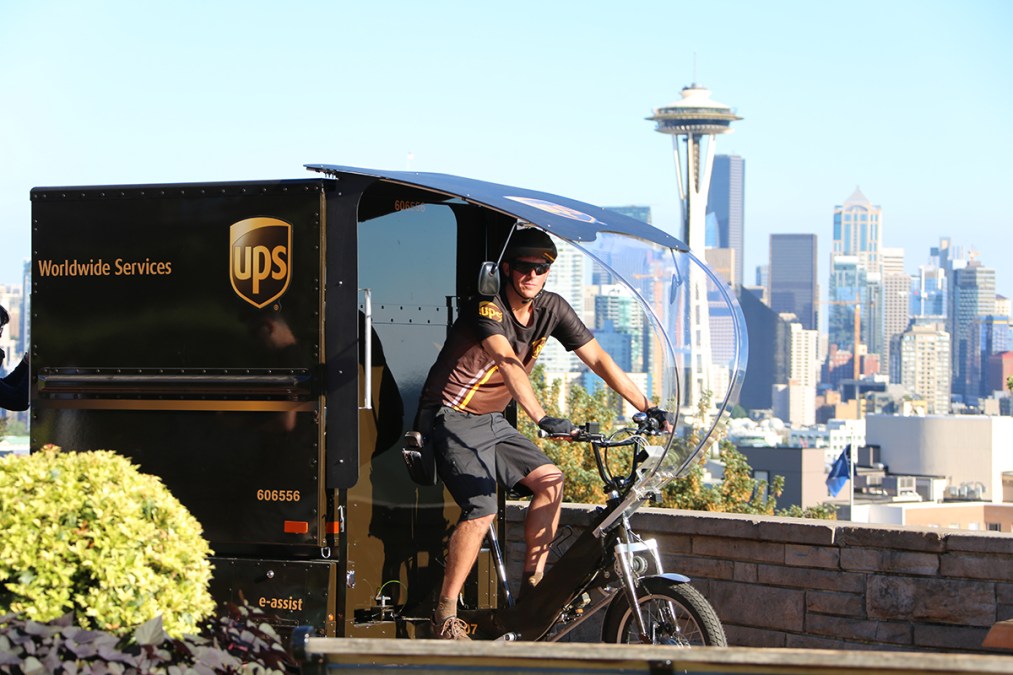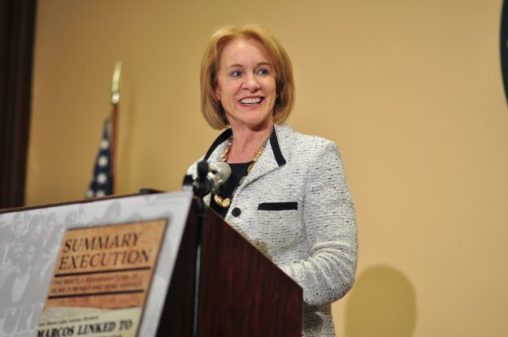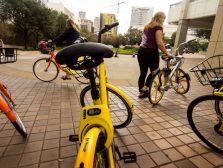Seattle readies UPS ‘eBike’ pilot to assist urban delivery

A new partnership between the city of Seattle, UPS and the University of Washington’s Urban Freight Lab is placing a new delivery vehicle on congested city streets — a pedal-assist cargo eBike with a customized, modular trailer — with an aim to lower emissions and improve delivery efficiency.
The project, launched this week, will see the deployment of UPS’s eBikes in downtown Seattle for the next 12 months to deliver cargo, similar to the way a traditional parcel van operates. The eBikes — designed as a regular bicycle with a vertical windshield and a removable, 400-pound-capacity trailer — are going to access delivery areas regular vans can’t, and reduce the amount of time delivery vehicles spend on curbsides and in loading zones, Seattle Mayor Jenny Durkan hopes.
“As Seattle grows and public and private megaprojects limit capacity on our downtown streets, this pilot will help us better understand how we can ensure the delivery of goods while making space on our streets for transit, bikes, and pedestrians. We are eager to learn how pilots like these can help build a city of the future with fewer cars, more transit and less carbon pollution,” Durkan said in a statement.
The city granted UPS a permit to temporarily detach the trailers on some curbs while empty.
The eBikes were first developed for use in 2012 in Hamburg, Germany, and have been widely used in Europe since. Outside of one eBike in use in Pittsburgh, the Seattle pilot will be the sole U.S. use case.
Whether the pilot — which is months in the making — succeeds or not, from the perspective of Seattle’s Department of Transportation, will be determined by the data analysis from the Urban Freight Lab. The lab is a university initiative with corporate and government partners — UPS, USPS, Kroger, and Nordstrom to name a few — that measures and helps develop solutions for efficient transport in the urban environment of Seattle. To conduct analysis for SDOT, the lab will compare and contrast 90 days worth of pre-pilot UPS GPS route data with the same data sampled during the pilot.
Understanding the public impact of the eBikes will be the goal of the lab’s analysis for SDOT, said director Barbara Ivanov. The lab will also examine the pilot in the context of its own key goals: reducing the rate of “first-delivery failures” — the amount of times that a package is incorrectly managed during its first trip in a van — and improving efficiency in the last 50 feet of a delivery, or the parking zones.
“We won’t be monitoring whether UPS maintains their productivity, although that’s certainly one of their goals,” Ivanov told StateScoop.
The project’s goals align closely with those seen in other dense urban areas around the country, as leaders seek to integrate new modes of transportation and technologies that can ease the burden placed on infrastructure by ballooning populations.
“The kinds of things we’re looking at are ‘what was the change in emissions,’ because you have fewer miles traveled by the parcel vans, and particularly in a really dense, downtown urban setting, the kinds of emissions that have a really negative impact on health,” Ivanov said.






